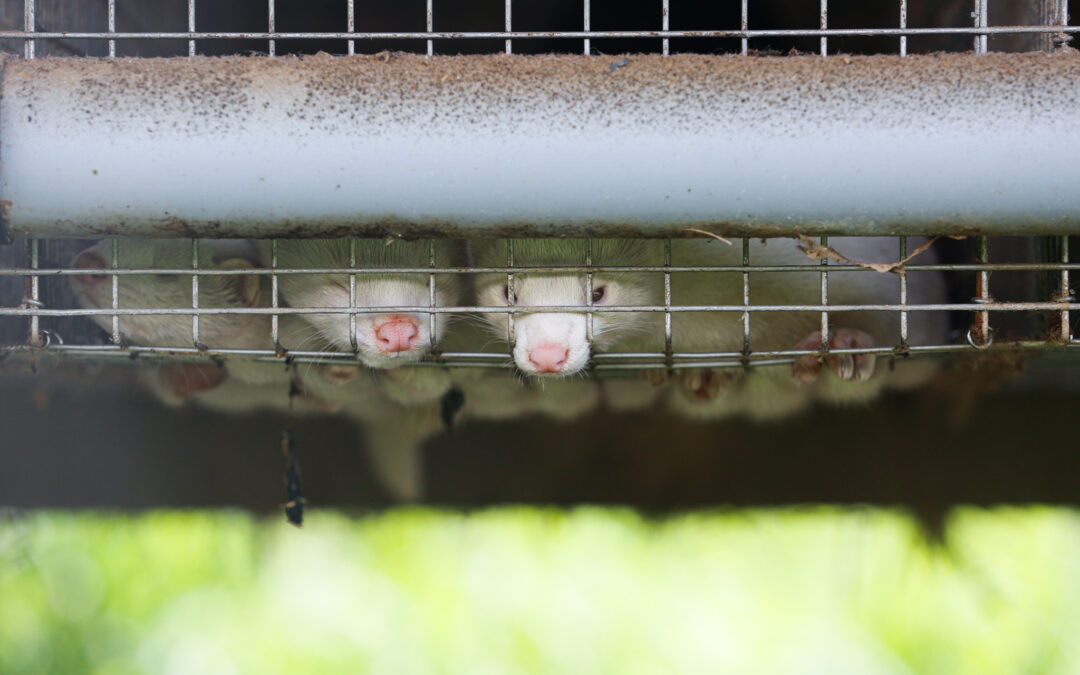A fur farm near Kartuzy in northern Poland will be permanently shut and all its animals culled after the first case of the coronavirus in mink was found in the country.
Poland’s powerful fur industry – which is the third largest in the world, and has recently fought off attempts by the ruling party to outlaw it as part of a proposed animal rights law – now fears costly culls.
Of 20 mink tested on the farm near Kartuzy, four were found to be infected, according to a statement by the agriculture ministry late on Sunday.
Minister Rolnictwa i Rozwoju Wsi został poinformowany 30.01.2021 r. po południu przez dyrektora Państwowego Instytutu Weterynaryjnego w Puławach
o potwierdzeniu pierwszego przypadku zakażenia SARS-CoV-2 u zwierząt futerkowych (norki) w Polsce. Więcej➡️https://t.co/m5rMXPwOFx pic.twitter.com/xcXJN3Kqzu— Ministerstwo Rolnictwa i Rozwoju Wsi (@MRiRW_GOV_PL) January 31, 2021
The farm is the first in Poland confirmed to have cases of the virus among mink, which are feared to transmit a mutated strain of the virus that could stifle global efforts at containing the pandemic.
There are 17 other mink farms in the Pomeranian district where the infected farm is located. A total of 5,845 mink are believed to be in the area of infection, reports Gazeta Wyborcza.
In late November, scientists from the Medical University of Gdańsk claimed to have identified Poland’s first cases of coronavirus among mink. But it later transpired that the tests were false positives.
Testing has since been been rolled out by veterinary services across all mink farms in the country, said Poland’s health minister Adam Niedzielski at a press conference on Monday.
After an immediate investigation, the district vet in Kartuzy ordered the slaughter of the animals. Veterinary services from the agriculture ministry and sanitary authorities have been deployed to the site, says Niedzielski.
All of the farm’s animal keepers have been taken into quarantine, and the results of “highly specialised” genetic tests on the infected mink are expected soon.
“I hope this is a single case, although we must take all measures to limit possible transmission of the virus,” said Waldemar Kraska, a deputy health minister, speaking to Radio Gdańsk on Monday.
Mink have been found to be infected with the virus across a number of European countries, including Sweden, Greece, the Netherlands, Italy, France, Spain and Denmark. The latter ordered a nationwide cull of mink, though that was later called off.
Denmark will dig up millions of dead mink it culled to stamp out a potentially dangerous mutation of the virus that causes Covid-19, only to find that their rotting carcasses could cause a fresh contamination risk https://t.co/QaD8YeTRZV
— The Wall Street Journal (@WSJ) December 21, 2020
Poland is the world’s third-largest mink fur producer, behind Denmark and China, with 354 farms housing some 6 million mink. As a major exporter, the fur industry carries significant political clout.
Last year, undercover recordings made at Poland’s largest fur farm revealed alleged animal abuse. Shortly after the material was published, Poland’s ruling party presented new animal protection legislation that, among other things, would have banned breeding animals for fur.
However, after intensive lobbying and protests from farmers, as well as opposition from within the ruling coalition itself – including the agriculture minister – the bill was ultimate shelved amidst an autumn government reshuffle.
Representatives of the Polish fur industry have threatened to launch a class-action lawsuit demanding damages for mink culled due to coronavirus, since the state was not offering any compensation. In Denmark, the state has compensated farmers with up to 19 billion Danish crowns, reports Reuters.
Main image credit: Otwarte Klatki/Wikimedia commons (under CC BY 2.0)

Maria Wilczek is deputy editor of Notes from Poland. She is a regular writer for The Times, The Economist and Al Jazeera English, and has also featured in Foreign Policy, Politico Europe, The Spectator and Gazeta Wyborcza.




















